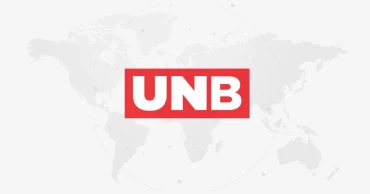Indo-Pacific stability
Australian envoy sees potentials for future bilateral cooperation “golden”
Australian High Commissioner to Bangladesh Jeremy Bruer has said his country "wants to work energetically" to enhance trade and investment with Bangladesh, noting that the future is “golden” for the two countries to collaborate in broader areas and take the ties to new heights.
“If you ask me for my prognosis for the future of Bangladesh-Australia relations - I say again, the future is golden,” he said, highlighting the opportunities that the recently signed Trade and Investment Framework Arrangement (TIFA) offer.
The High Commissioner, however, said he does not deny that there are significant challenges globally that they need to be met, taking advantage of that golden future and working together in a way that helps meet those challenges “constructively” and supports welfare of the countries.
The Australian envoy made the remarks while delivering his keynote speech at a virtual dialogue titled “Bangladesh-Australia Relations: Prognosis for the Future”.
Cosmos Foundation, the philanthropic arm of the Cosmos Group, hosted the dialogue as part of its ongoing Ambassadors' Lecture Series.
Read: Cosmos Dialogue on Dhaka-Washington ties premieres Saturday on Facebook
The opening remarks were delivered by Cosmos Foundation Chairman Enayetullah Khan. The session was chaired by Dr Iftekhar Ahmed Chowdhury, a renowned scholar-diplomat and former Advisor on Foreign Affairs of Bangladesh Caretaker Government.
Former Foreign Secretary Shamsher Mobin Chowdhury, Distinguished Fellow at Centre for Policy Dialogue (CPD) Dr Debapriya Bhattacharya, Professor at International Relations Department of Dhaka University Imtiaz Ahmed, Brig Gen (retd) Shahedul Anam Khan and Honorary Advisor Emeritus, Cosmos Foundation Ambassador (retd) Tariq A Karim comprised the panel of discussants.
Enayetullah Khan said the conclusion of the Australia-Bangladesh TIFA on September 15 was timely and could provide the necessary boost towards a more significant economic relationship.
While TIFAs are seen as mostly symbolic, Khan said, they do signal an injection of commitment and ambition, which is what the next phase of the relationship between Bangladesh and Australia actually needs. “So, we’re on the right track.”
He said it is true that India would be Australia’s principal partner in this region but Australia does not look at South Asia only through an Indian lens. “The ever-burgeoning Bangladesh-Australia cooperation, I hope, can become a testimony to that.”
Highlighting Australia’s tremendous moral and material support towards Bangladesh, Dr Iftekhar Chowdhury shared how the focus of aid at that time shifted to trade and commerce which seem to have grown “exponentially” leading to the signing of TIFA.
“We’re also looking for expanded collaboration in the whole range of activities -- e-commerce, infrastructure, power and energy, water, sanitation, hygiene; and tapping potential in the blue economy – our maritime resources,” he said, noting that the two countries will be celebrating 50 years of diplomatic relations next year.
The foreign affairs expert said market access is important as Bangladesh is set to graduate from LDC to a developing country.
Dr Iftekhar said Bangladesh-Australia partnership on a global level is also reflected in many common positions as the two countries adopt in multilateral fora such as the United Nations (UN) and the World Trade Organization (WTO).
“As I’m positive, Australia also understands our need for a sharp development orientation and foreign policy; and our preference for conflict avoidance,” he said.
4 years ago

